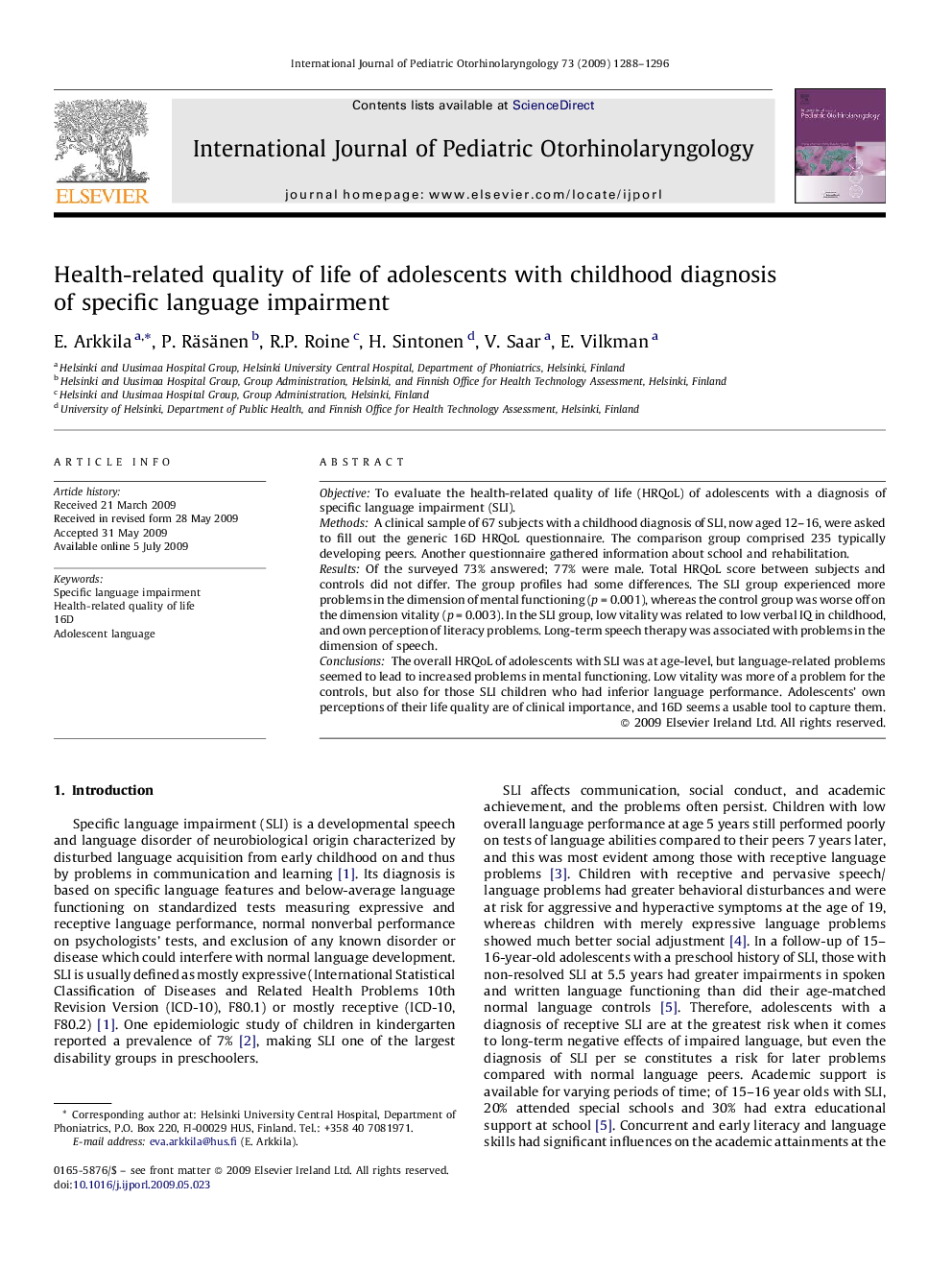| Article ID | Journal | Published Year | Pages | File Type |
|---|---|---|---|---|
| 4114427 | International Journal of Pediatric Otorhinolaryngology | 2009 | 9 Pages |
ObjectiveTo evaluate the health-related quality of life (HRQoL) of adolescents with a diagnosis of specific language impairment (SLI).MethodsA clinical sample of 67 subjects with a childhood diagnosis of SLI, now aged 12–16, were asked to fill out the generic 16D HRQoL questionnaire. The comparison group comprised 235 typically developing peers. Another questionnaire gathered information about school and rehabilitation.ResultsOf the surveyed 73% answered; 77% were male. Total HRQoL score between subjects and controls did not differ. The group profiles had some differences. The SLI group experienced more problems in the dimension of mental functioning (p = 0.001), whereas the control group was worse off on the dimension vitality (p = 0.003). In the SLI group, low vitality was related to low verbal IQ in childhood, and own perception of literacy problems. Long-term speech therapy was associated with problems in the dimension of speech.ConclusionsThe overall HRQoL of adolescents with SLI was at age-level, but language-related problems seemed to lead to increased problems in mental functioning. Low vitality was more of a problem for the controls, but also for those SLI children who had inferior language performance. Adolescents’ own perceptions of their life quality are of clinical importance, and 16D seems a usable tool to capture them.
